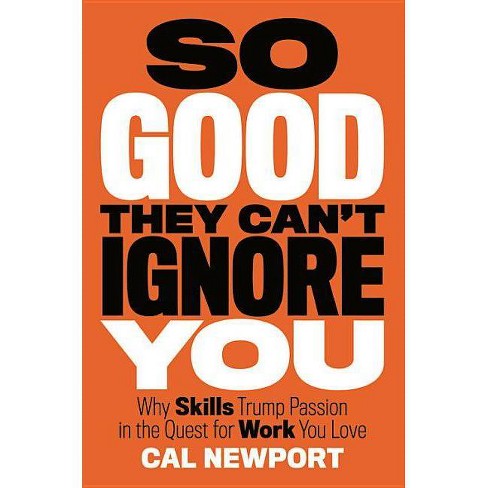What books should you buy for ACT prep?
Whenever I travel to speak, I am frequently asked about my recommendations for ACT Prep Books. While I do offer an online ACT Prep Course, I wanted to go through and talk about the print resources I recommend.
NOTE: Grab my FREE 10-page ACT Prep Guide here!
Practice/Review Books vs Strategy/Content Books
First, it's important to differentiate between the differences between the purposes of your books, and for that I want to highlight the four components that are essential for ACT Prep:
- STRATEGY
- CONTENT
- PRACTICE
- REVIEW
PRACTICE/REVIEW: The ACT is a paper test, so you need to practice it that way-you need paper copies of official exams. Only one free ACT exam is released officially online, so if you don't get any other book, you need to own an Official Guide to the ACT.
Why the Official Guide? The ACT is copyrighted, so while Princeton Review, Barrons, Kaplan and other publishers sell books touting practice questions or practice tests, they are real exams and can actually b...
Do I have to take Biology / Chemistry / Physics?

I received the following question about science credits:
I have a daughter finishing 9th grade. She has done well in Biology 1 but doesn't want to take Chemistry or Physics. She is preparing for college and is unsure of her career at this point. She's not interested in science or math careers. She's English and History minded and artsy. What is your opinion of allowing her to take advanced Biology and maybe Marine Biology instead of Chemistry and Physics.
Great question! It can be confusing on the requirements when it comes to science, as we typically associate the core sciences of Biology, Chemistry, and Physics as being mandatory.
Flexibility in Science
However, unlike math where Algebra 1, Algebra 2 and Geometry are pretty much required nation-wide, there is a lot more flexibility in most states when it comes to science requirements. By far Biology is the most commonly required science (if any), with Physical Science coming in second. In most states, there are options that ...
Learn to Eat the Frog
One of the most important skills a student can learn in high school is how to eat a frog.
Yep. You heard me right.
There are a couple of different quotes, attributed to Mark Twain (although more likely said by Nicolas Chamfort), which go something like this:
"Eat a live frog first thing in the morning and nothing worse will happen to you the rest of the day"
or
"If it's your job to eat a frog, it's best to do it first thing in the morning. And if it's your job to eat two frogs, it's best to eat the biggest one first."
Eww. Gross.
Okay, now that you've lost your appetite, let's get serious. Obviously we're not really encouraging you to go out and gorge yourself on a poor amphibian, but rather that you should tackle whatever sounds the least appealing first in your day. Getting that unpleasantry out of the way on the front end allows for things to be smoother as the day progresses because you've already got the most difficult part out of the way.
Academically speaking, th...
Does Dual Enrollment Count as 1 Credit or .5 for High School?
For dual enrollment, does each college semester class count as 1 credit or .5 credits for high school?
Great question! So when you are looking at the content that is covered in a Dual Enrollment course, a one-semester college class is typically considered to be the equivalency of a year of high school. So what you would normally cover in a whole year of high school Spanish 1 will be covered in one semester of Spanish at a college, a year of biology in high school will be equivalent to the first semester of biology in college, etc (should definitely take that into consideration when evaluating if your teen is ready for Dual Enrollment!).
How does that count when it comes to your transcript? When you take a Dual Enrollment course through a college (whether online, at the college campus, or at your high school through a DE arrangement), you will typically receive 3 hours of college credit (which will be on a transcript from that college that you will send to the school you ultimatel...
The BEST career prep book (in my opinion)!
I received the following question:
"Can you recommend a good career preparedness book or youtube video?"
There are a lot of different resources I could recommend, but if I'm going to boil it down to one it would be this:
"So Good They Can't Ignore You" by Cal Newport. I feel like this book is essential. I actually spend a whole week of my 4-week Career Prep Challenge based around the ideas in this book to help students build a framework around how they will approach the career pursuit decision.
So much of our focus in America is on passion. What are you passionate about, what do you enjoy, what are your interests, etc. When it comes time for teens to explore career paths those questions usually play the lions share in their decision.
Only problem with this is if most teens make their decisions based solely on what they are "passionate" about, we'll end up with the majority of the workforce being YouTube personalities, video game developers, LEGO set designers, etc.
Just becaus...
Counting Junior High Classes for High School Credit
I received the following question:
My daughter is in 8th grade this year. I am curious, if she takes classes this year that meet her HS requirements, can I count them as such or does she have to wait until next year for them to count?
The answer to this really depends upon your specific school or entity that you are under academically, but generally speaking yes, you can typically count 2-3 credits from junior high (7th/8th grade) towards your high school credit requirements.
Usually there are restrictions on the type of credits that are allowed, and they typically fall into the following three categories:
- MATH: This is the most common one, if you take Algebra 1 and/or Geometry in 7th or 8th grade then those courses will count towards your high school credit requirements (note that sometimes you might still have to take math every year of high school even if you get an early start, such as in Tennessee).
- SCIENCE: You can typically count Physical Science towards your high sc ...
Is Dual Enrollment a Better Option than AP Classes?
I received the following question on Facebook:
Is Dual Enrollment a better option than AP classes?
Great question! There is a growing trend to earn college credit early, but we should always step back and ask ourselves which tools best fits our circumstances (or if early credit even makes sense for your situation).
To best understand this question I want to quickly summarize what each of these tools are:
Dual Enrollment: Where you take a college course while still in high school, with the goal of earning both high school and college credit.
AP Classes: An advanced, college-level high school course created by College Board that is designed to prepare you to take an AP exam and possibly earn college credit.
AP Exams: A test that is designed to be taken at the end of
It's important to realize that while both of these tools have become increasingly popular, they still are very specialized college prep tools that are not required and do not make sense for all students! To help yo...
AP or CLEP Tests (or neither)?
There is a growing trend to utilize credit by examination, whether that's AP exams or CLEP tests or other tools like DSST exams.
But just because something is a trend doesn't mean it makes sense for you!
Here we'll take a look at the difference between the two exams and then some criteria for you to determine if these tools make sense for you:
AP Exams
- More widely accepted than CLEP tests, and generally considered to be more difficult.
- Does not require you to take an AP course.
- Are only offered in May/June of each year.
- The exams range from 90 minutes to over 3 hours and include both
multiple choice and free-response questions. - Official Website for AP Exams
- List of AP Courses/Exams
- Free Practice Resources
CLEP Tests
- Not as widely accepted as AP exams, but are generally considered easier.
- You can schedule to test whenever works for you and your local testing facility (often community colleges).
- Exams are 90 minutes long, computer administered, and mult...
Pros and Cons of Pursuing an Associate Degree During High School
I received the following question this week: What are the pros and cons of earning an associate degree during high school?
There are more and more opportunities to earn college credit while still in high school, even leading up to a full Associate Degree. The person who asked the question lived in one of the growing number of states that offer a free or drastically reduced option for dual enrollment. This sounds great, get a whole Associate Degree while still in high school, but you should carefully consider the pros and cons first!
Pros:
- Students can develop the study habits needed to excel at college while still in high school and with their high school resources and support team.
- Completing an Associate Degree in high school can allow a student to jump right in to their major after graduation (rather than having to focus on general studies).
- There are a growing number of well-paying jobs that only require an Associate Degree, providing more options for the student employment- ...
4 Reasons Every High-Schooler Should Take Personality Tests
One of the most frequent questions I get from parents is "how can I best help my teen figure out a career path?"
There are several tools that can help, but I always recommend starting with personality or strengths tests. There are a variety of options, but ultimately a personality or strengths test is a short quiz (taking anywhere from 15 minutes to an hour depending upon the exam) that provides a categorization of characteristic patterns of behavior that might be exhibited in different scenarios. Obviously these tests aren't flawless, and some will fit certain people better than others and all will have their strengths and weaknesses, but they are a good starting point.
I recommend all high school students to take at least one personality test in high school. There are four reasons in particular why I think this is the best route:
1. Personality tests provide insight.
Personality tests provide insight about the student that is beneficial for understanding how they communicate, th...

